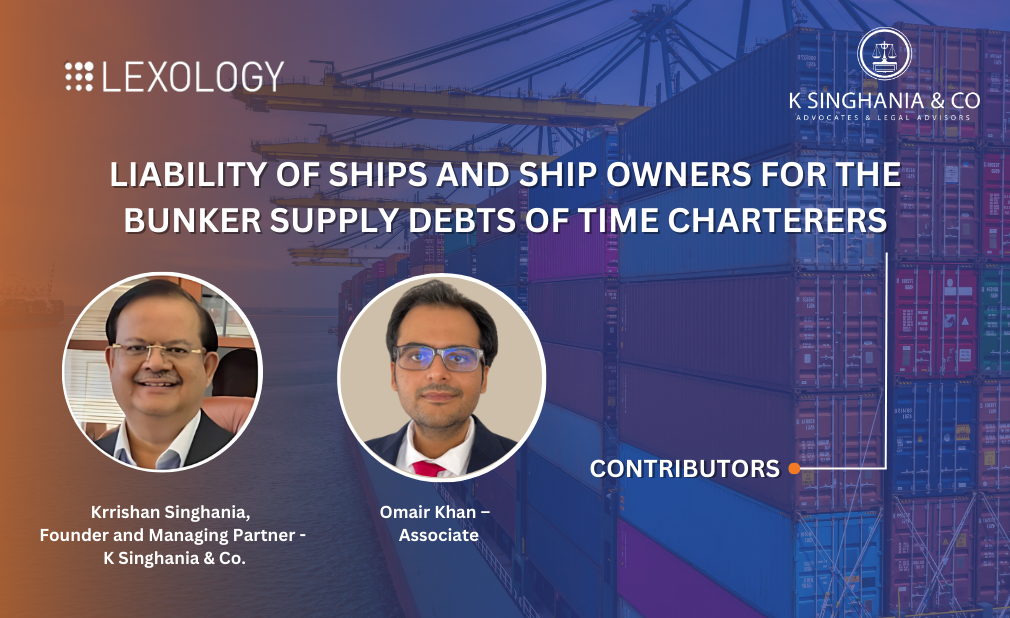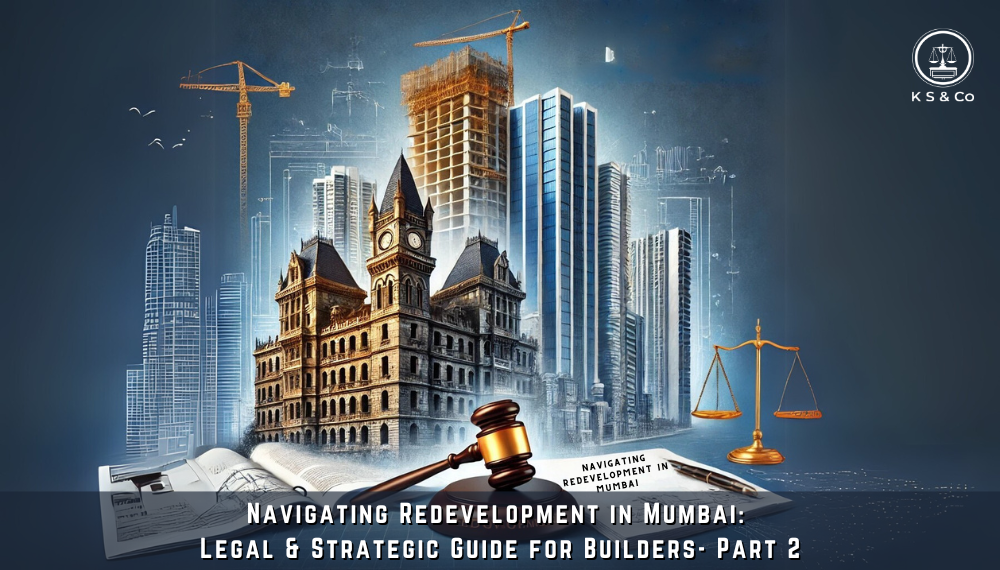Maritime law is unique insofar as a ship may be held liable for claims that the actual owner of the ship is not even responsible for. A maritime claim is made against the ship and a lien is sought on the ship to provide security for the claim. As the shipowner or the ship may be located anywhere in the world, a maritime claimant seeks the arrest of a vessel in rem to force the in personam availability of the shipowner to submit to the jurisdiction of the court so that their maritime claim is not frustrated.
International conventions specifically list out what constitutes a maritime claim. One such claim for which vessels are often sought to be arrested is the supply of bunkers to the vessel. When a charterer hires a ship under a time charterparty, it is typically their responsibility to cover the costs of bunkers consumed during the charter period. Nevertheless, bunker suppliers often resort to arresting the ship to secure payment for supplied bunkers, arguing that bunkers are necessaries supplies to the ship, thereby making the ship owner additionally liable, notwithstanding the absence of a direct contractual relationship between ship owners and bunker suppliers. This article aims to delve more closely into these disputes and illuminate the circumstances both before and after the enactment of the Admiralty (Jurisdiction and Settlement of Maritime Claims) Act, 2017 (Admiralty Act).
Prior to 2017, India did not have any codified legislation that addressed ship arrests. The three admiralty courts, namely the Bombay, Madras and Calcutta High Courts decided maritime disputes on the basis of archaic British era laws and international conventions in the field. Their decisions also contributed to the development of the admiralty jurisprudence in India.
The Supreme Court of India, in the case of MV Elisabeth v. Harwan Investment and Trading (P) Ltd., incorporated the principles of the Arrest Convention, 1952, into Indian law until specific legislation was enacted. Despite the 1952 Convention not expressly recognizing a maritime claim for bunkers supplied to a ship, Article 1(k) covers such claims as the term goods therein are considered to include bunkers. Article 3 of the Convention outlines the enforcement mechanism for maritime claims through actions in rem against the particular ship and any other ship owned by the same person when the claim arose. While Article 3(1) does not explicitly state an in personam liability for the shipowner, such liability is implied, as seen in the requirement for common ownership between the ships at the time of arrest and the time of the claim’s accrual.
The Arrest Convention of 1999 was incorporated into Indian law by the Supreme Court through Liverpool & London SP & I Assn. Ltd. v. MV Sea Success I. Article 1(l) of the convention explicitly recognized claims related to the bunkers supplied to ships as maritime claims. Under the Arrest Convention of 1999, Article 3(1)(a) allows for the enforcement of a maritime claim through the arrest of the offending ship, provided it is owned by the person liable for the claim at the time of both the claim’s occurrence and the arrest. This article marks a significant departure from the 1952 Convention as it explicitly lists the requirement of in personam liability on the part of the shipowner for initiating an action in rem against its vessels.
Finally in 2017, recognizing the need for a comprehensive legal framework and with a view to codify the law relating to arrest of ships in India, the Government of India enacted the Admiratly Act, 2017. The sections relevant to this article are reproduced below.
S. 4. Maritime claim – 1) The High Court may exercise jurisdiction to hear and determine any question on a maritime claim, against any vessel, arising out of any
(l) goods, materials, perishable or non-perishable provisions, bunker fuel, equipment (including containers), supplied or services rendered to the vessel for its operation, management, preservation or maintenance including any fee payable or leviable
S. 5. Arrest of vessel in rem – 1) The High Court may order arrest of any vessel which is within its jurisdiction for the purpose of providing security against a maritime claim which is the subject of an admiralty proceeding, where the court has reason to believe that –
(a) the person who owned the vessel at the time when the maritime claim arose is liable for the claim and is the owner of the vessel when the arrest is effected.
A plain reading of these sections makes it clear that the in personam liability of the ship owner is a necessary pre-condition to arrest a ship to secure a maritime claim.
In the realm of commercial international trade, it is common for a ship to be let out through a series of charterparties. For example, a ship owner may lease a ship on a time charter to one party, who subsequently sub-charters it to another, and so forth. At the conclusion of this chain of time charterparties, the ultimate time charterer may arrange for bunker contracts. The question that emerges in this scenario is whether the bunker contract entered into by the final time charterer can legally bind the original ship owner and whether in the absence of any in personam liability of the owner, an action in rem against the ship is legally tenable.
In M.V. Lucky Field v. Universal Oil Limited, the Gujarat High Court dealt with a matter involving the arrest of a ship by an unpaid physical bunker supplier to enforce its maritime claim for supplying bunkers to the vessel at the brokers’ request. The bunker supplier substantiated its claim with the Bunker Delivery Note, signed by the Master/Chief Engineer of the vessel M.V. Lucky Field, indicating the bunkers were supplied to the faith and credit of the vessel.
Following the arrest, the owners of the vessel filed an application requesting the vacation of the arrest and the return of furnished security. The owners argued that they had no in personam liability since there was no privity of contract between them and the bunker supplier. After hearing both parties, the Gujarat High Court determined that the issue of whether the Master/Chief Engineer of the vessel M.V. Lucky Field had “actual, implied, or ostensible authority” was a triable matter. Consequently, the High Court rejected the application to vacate the arrest, as requested by the owners and deemed the case by the unpaid bunker supplier to be not vexatious.
Similarly, in Crescent Petroleum Ltd. v. MV Monchegorsk, the Bombay High Court addressed a matter where an unpaid bunker supplier had arrested a vessel to secure its maritime claim. The owners filed an application seeking to dismiss the suit, arguing that the action in rem lacked jurisdiction. They contended that no cause of action was established against the owners of the defendant vessel, and even within the scope of a reasonably arguable best case, the suit was not maintainable. The claimant had supplied bunkers to the ship under the time charterer’s order, and the time charterer was responsible for payment under the Charterparty terms.
In deciding this application, the Court noted that it was filed under Order VII Rule 11 of the Civil Procedure Code, 1908. Under this rule, a suit could only be dismissed if it is either barred by law or fails to disclose a cause of action when tested on a demurrer. Therefore, dismissal is warranted only if essential averments and material are lacking to prima facie establish that the plaintiff did not contract to supply bunkers at the vessel owner’s instance and credit.
The Court, upon reviewing the averments in the plaint and the material presented, found that the plaintiff had prima facie made a case that the bunkers were supplied at the instance or authority of the vessel / owners. It acknowledged that the owners could rebut this presumption by relying on the terms of the Charterparty. However, the Court emphasized that such matters should be determined during the appreciation of evidence and not at an interlocutory stage. Consequently, the learned judge dismissed the application for vacation of arrest filed by the owners.
It is noteworthy that in both of these instances, the cases were at an interlocutory stage. At this juncture, the High Courts of Bombay and Gujarat only examined whether there exists a prima facie case to warrant the arrest of the vessel. This is in line with the decision of the Supreme Court of India in 1996 in Videsh Sanchar Nigam Ltd vs M.V. Kapitan Kud making it clear that a ship could be arrested as long as reasonably arguable best case could be made out by the petitioner.
The arrest of a ship imposes significant disruptions on both the vessel and its owner. When a ship, particularly one engaged in commercial activities, is arrested, it leads to financial losses for all stakeholders with cargo on board. Hence, particularly post the enactment of the Admiralty Act, 2017, it is respectfully urged that the relief ship arrest to secure a maritime claim should only be sanctioned when there is clear evidence establishing the personal liability of the ship owner for that maritime claim. In light of this observation, the decision of the Gujarat High Court in Dan Bunkering Pte. Ltd v. Best Excellence Corporation Ltd. in 2020 is a welcome step in the right direction.
In this case, an unpaid bunker supplier pursued the arrest of a vessel by claiming a valid contractual lien against the vessel on the basis of its standard terms and conditions of supply. The vessel was under a time charter at the time. Correspondence revealed that the bunkers were ordered by the time charterer and not the vessel owner. The supplier argued the vessel’s consumption of bunkers created liability on the vessel itself. However, the Court rejected this contention and relied on the Admiralty Act, 2017, emphasizing the absence of privity of contract. This decision marked a significant departure from the stand taken by the Gujarat High Court in its previous decisions, holding that the bunker supplier was a maritime claimant under S. 4 of the Admiralty Act, 2017 and could only arrest a ship if it were satisfied that the owner had in personam liability for the bunker supplies.
It is hoped that this decision is confirmed by the Supreme Court of India and becomes firmly entrenched into Indian jurisprudence. This will ensure that ships are not arrested capriciously, and the extraordinary remedy of arresting a vessel is sanctioned by courts sparingly and in the interests of securing genuine maritime claims.
Ship owners letting out their ships on time charterparties have to be very vigilant in negotiating their charterparties. Not only must the charterparty explicitly exclude the liability of the shipowner for bunker debts incurred by the charterer but also ship owners must demand specific indemnity from their charterers for vessels arrested because of the charterers outstanding bunker debts. Moreover, clauses should be negotiated into time charterparties to ensure that the time charterer has to make the bunker supplier aware of the fact that it is only a time charterer and has no capacity to create a lien over the vessel for the debts incurred by it.






